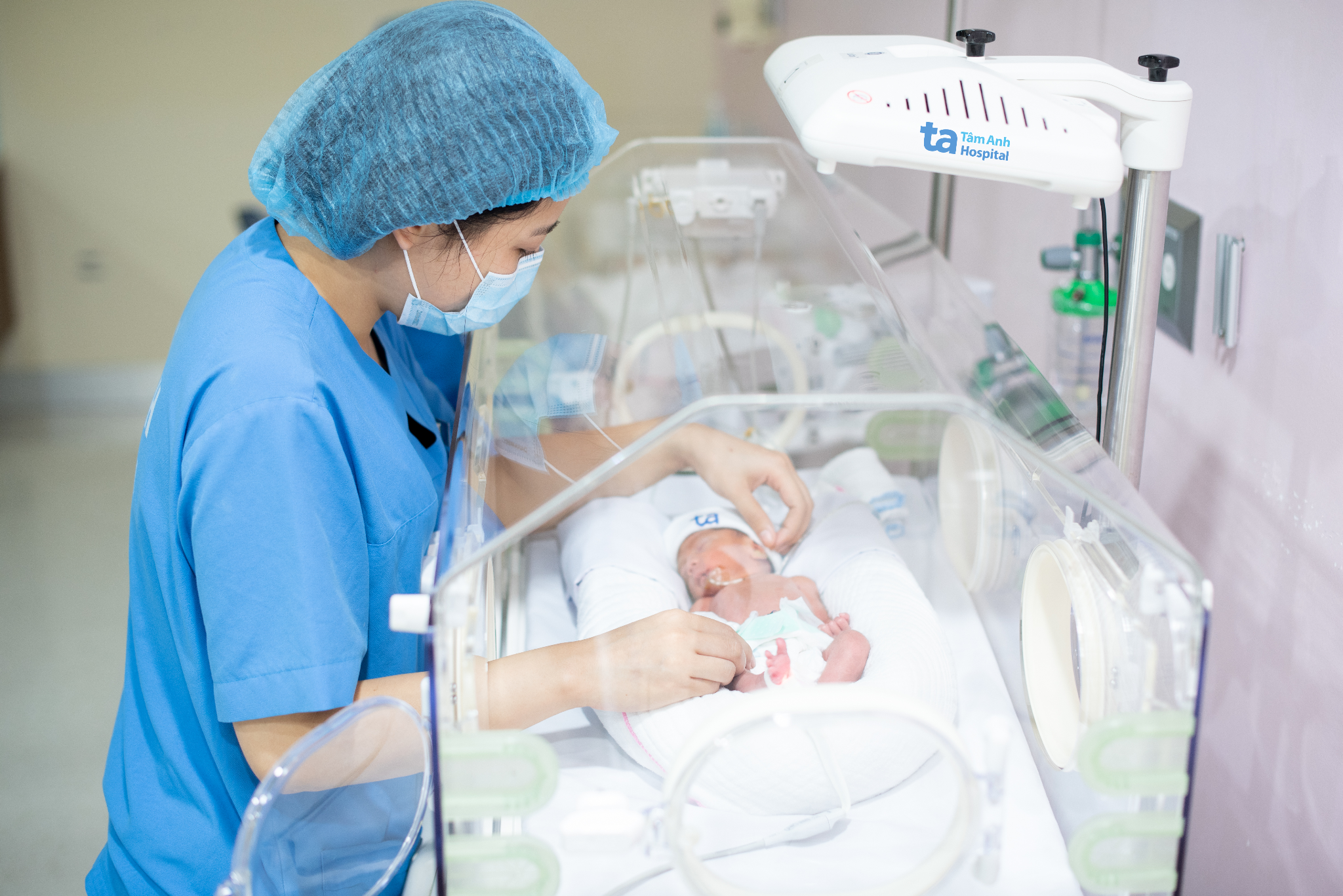Doctor Pham Thi Van Xuan, from the Obstetrics and Gynecology Center at Tam Anh General Hospital in Hanoi, explained that years ago, the way to increase the success rate after IVF embryo transfer was to transfer two to three embryos into the uterus. This often led to twin or triplet pregnancies, increasing the risk of premature labor. Multiple pregnancies also increase the risk of pregnancy complications like pre-eclampsia, gestational diabetes, twin-to-twin transfusion syndrome, and placenta accreta.
Women undergoing IVF are often older. With advanced age, the risk of decreased uterine function, hormonal disorders, and chronic diseases like hypertension and diabetes increases, raising the risk of premature birth and pregnancy complications.
During natural pregnancy, the mother's hormones regulate themselves. With IVF, hormone levels depend on external supplements. Without proper monitoring and hormone management, the risk of miscarriage and premature birth increases. Some physiological and metabolic disorders common in infertile women, such as high blood triglyceride levels, blood clotting disorders, polycystic ovary syndrome, and pelvic inflammatory disease, can also affect the ability to carry a pregnancy to term. In some high-risk multiple pregnancies, fetal reduction procedures may also increase the risk of premature labor if not closely monitored.
Anxiety throughout pregnancy poses a higher risk for IVF pregnancies. Mental stress and depression can increase cortisol levels, significantly affecting the mother's hormone levels and reducing nutrient supply to the fetus. Continuous uterine contractions increase the risk of miscarriage and fetal growth restriction.
 |
Neonatal doctors are caring for a premature baby. Photo: *Tam Anh General Hospital Hanoi* |
According to Dr. Xuan, with advancements in modern medicine and comprehensive obstetric care, many women with IVF pregnancies maintain healthy pregnancies and deliver full-term babies. One major change in modern IVF strategies is prioritizing single embryo transfer instead of multiple embryo transfers. For women with a short cervix, cervical incompetence, or a history of miscarriage or premature birth, doctors may recommend cervical cerclage between weeks 12 and 16 of pregnancy to increase the chances of carrying the pregnancy to term. This is a simple and effective procedure for preventing premature birth.
Dr. Xuan advises that women with IVF pregnancies should be closely monitored, following recommendations and proper care as instructed by their doctor. In addition to regular ultrasounds, cervical length measurements, screening tests for pre-eclampsia and gestational diabetes, and assessment of placental condition and amniotic fluid levels, pregnant women must strictly adhere to hormone therapy regimens after embryo transfer.
Maintaining a balanced diet appropriate for their physical condition, getting enough sleep, drinking enough water, resting adequately, staying positive, and engaging in light exercise like walking, yoga, and swimming support healthy fetal development. Pregnant women can relieve stress by listening to music, reading, sharing with family and friends, or consulting a psychologist. If any unusual signs appear, such as abdominal pain, especially in the lower back, vaginal bleeding or discharge, pelvic or vaginal heaviness, or bloating, pregnant women should immediately go to the hospital for examination.
Trinh Mai
| Readers can submit questions about pregnancy and childbirth here for doctors to answer. |












